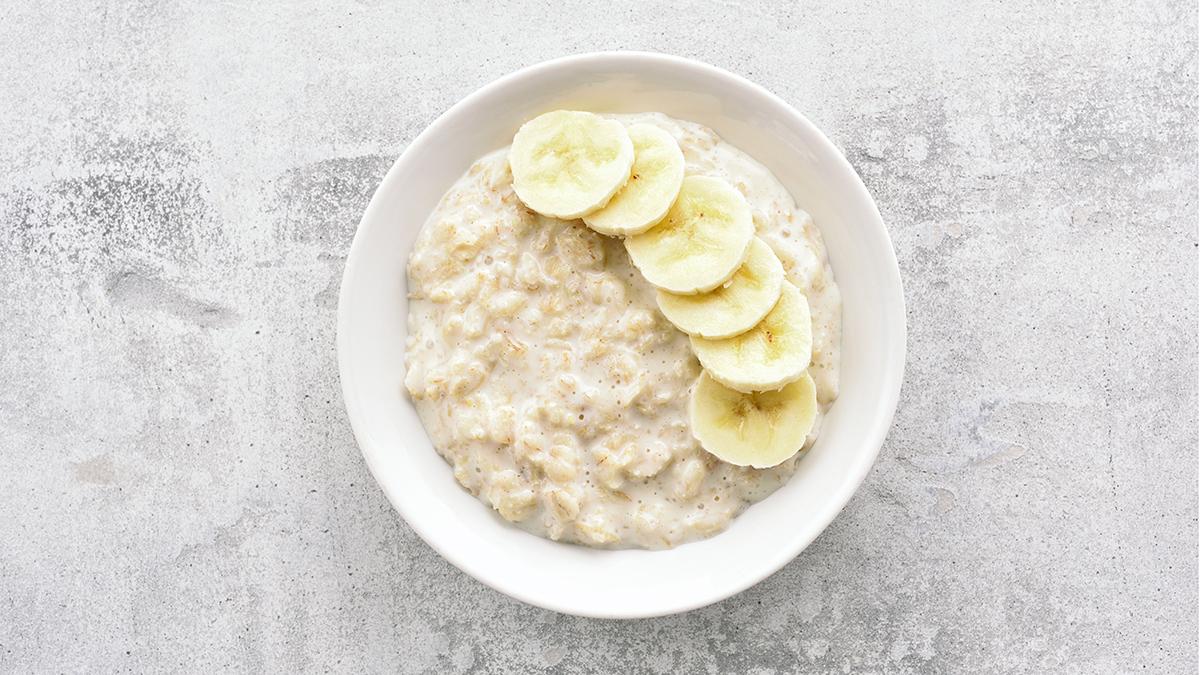Ask Dr Adam | Should I Time Carbs Around Workouts?

Dear Dr Adam,
I exercise most mornings and have always relied on a carb-packed breakfast beforehand to fuel my workout. This being the case, should I be avoiding carbs come dinner time?
Jason, Austin
Hi Jason,
We need to unpick this a bit because there is no one-size-fits-all answer to your question.
The first thing to consider is what kind of workout you are doing in the morning? Because there’s a statement being made here – and I think it’s one that many consider gospel – that carbs are important for fueling your workout.
Well, maybe. You will be using carbs, predominantly, but how you use those carbs depends on what you’re doing, and your wider meal structure around that workout, not just on the day but even the day or days before.
There’s a couple of thought trails. One is: “I need carbs to maximize my workout, be that for longevity or intensity.” The strategy here would be to ensure you have carbs in your system before your workout.
But where those carbs should come from? Well, if you’re exercising in the morning, it’s not particularly practical to wake up, have a lot of carbs and then undertake your workout for a couple of reasons. One is that you don’t tend to have a very big appetite in the morning, and second of all, if that’s the only opportunity you have to carb up, you probably won’t be able to take in enough carbs to give you everything you need. People also find it very uncomfortable to go for a workout after a big carb-fest breakfast.
So really, carbs could be better off coming from the previous day. You might consider having a high carb dinner in preparation for the morning, rather than simply thinking about it immediately around the workout.
Scenario number two is the idea of training with low carbohydrate or depleted muscle glycogen. Typically this works in the morning, before breakfast, having had a night to fast. The benefit of doing that is that you amplify the metabolic stress of that exercise because you do it with limited fuel, triggering more adaptations in that muscle and improving the endurance of that muscle.
But that only really works if you’re doing a workout that necessitates low fuel like a morning gym class or jog; something that might be of moderate to high intensity but is doable even with depleted glycogen stores.
Now, if you’re talking about strength training, this is a little different. For resistance, you’re using fuel, but you’re not really relying on it during the exercise itself. Because it’s such a high intensity, to generate that kind of power, you’re paying back empty systems by using carbohydrates. So while you do use carbs in the exercise, you’ll probably be paying more attention to refuelling rather than fueling up for that exercise.
“Really when you’re thinking about nutrition around exercise, it’s about fueling for the work that’s required”
It would be a similar story to your spin class. You’d possibly have a cancelling out of some of those benefits if you’re trying to do high-intensity (which is what resistance work is) and train low. You might not have to aggressively fuel with carbohydrate as you would a long duration event, but you would probably need to have a moderate amount of carbohydrate to start with, rather than completely depleted.
So really when you’re thinking about nutrition around exercise, it’s about fueling for the work that’s required. If you work out, you need to supply the fuel for that workout. Whether you provide it before or afterwards is up to you. If you’re fuelling up to maximise performance, you might want to recover from that exercise immediately, but the amount of fuel you have over the next 2-5 meals that follow tends to be enough to cover the fuel that you just spent.
There are periods where you could have lower-carb meals and periods where you could have high-carb meals. On a workout day, you might have more carbohydrate overall than a non-workout day. In some cases, you might have to still have a high carb recovery day if you’ve done two or three sessions on a workout day, for instance, if you’re an athlete who needs to train multiple times a day.
In essence, you’re right, because you want to have a balance. You don’t want to have over and above what you need so you’re constantly awash with carbohydrate all the time, but that’s not to say you have to avoid carbs altogether; it’s about managing meal to meal, around the exercise you’re doing or not doing.
_
For more insights from Dr Adam Collins on carbs and exercise, check out his five-part series here.
To have your nutrition questions answered by Dr Adam Collins, please email hello@formnutrition.com/us


















